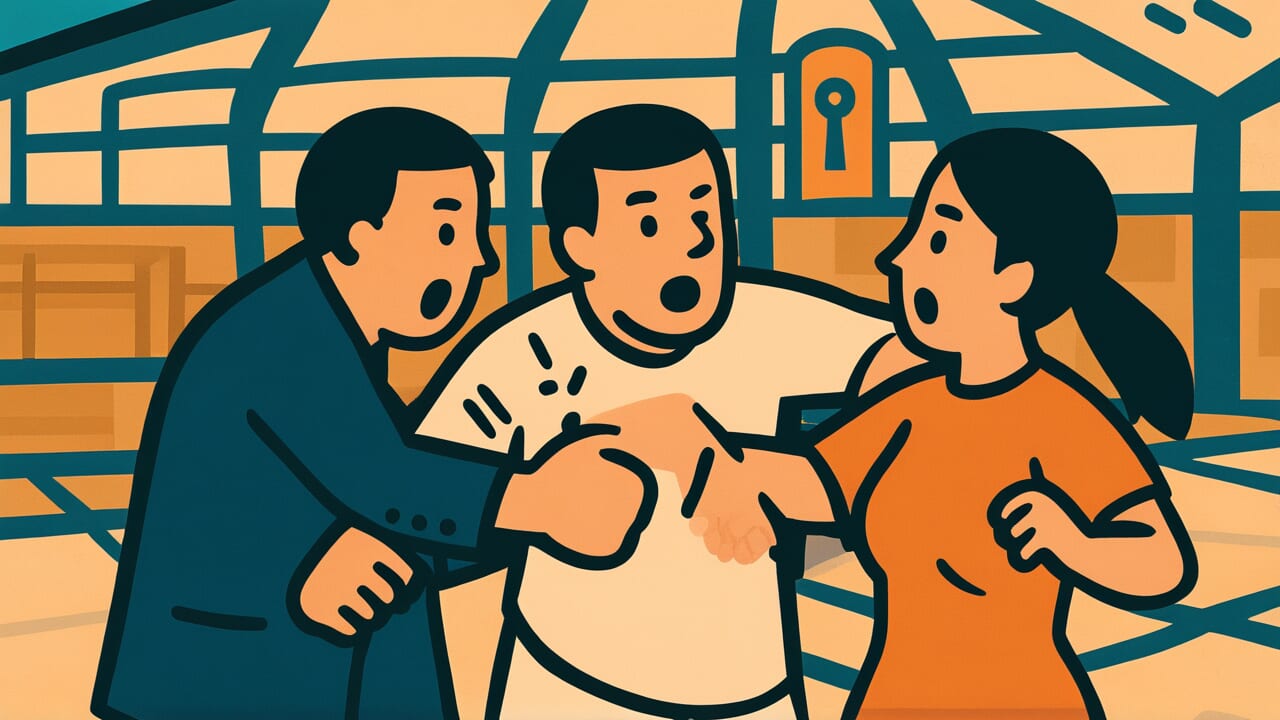How to Read “Have the fight beforehand”
Ato no kenka saki de suru
Meaning of “Have the fight beforehand”
This proverb teaches that you should speak up clearly and discuss things thoroughly at the beginning, even if it’s uncomfortable. This prevents bigger conflicts and disputes from happening later.
Everyone wants to maintain good relationships with others. That’s why we often hesitate to voice our concerns or disagreements at first.
However, when you leave small doubts and differences of opinion unresolved, they pile up over time. Eventually, they explode into major fights and serious conflicts.
This proverb is used when making contracts or agreements, before starting collaborative work, or in the early stages of new relationships.
It expresses the idea that “it’s better to feel awkward now than to have a huge fight later.”
Even today, this wisdom remains extremely valuable in business and personal relationships. By aligning conditions and expectations from the start, you can prevent future troubles before they happen.
Origin and Etymology
No clear written records exist about the origin of this proverb. However, we can make interesting observations from the structure of the phrase itself.
The expression combines two contrasting time frames: “later fight” and “do beforehand.” This shows the Japanese way of preventive thinking.
The idea of reversing time to avoid an intense emotional clash is distinctly Japanese wisdom.
One theory suggests this expression emerged from merchant culture during the Edo period. In business transactions, disputes often arose later over who said what.
Merchants needed to settle all conditions firmly at the contract stage. In an era when verbal agreements were common, discussing everything upfront was essential for building long-term trust.
This wisdom was also important for maintaining relationships in village communities. In small communities, broken relationships are hard to repair.
That’s why the lesson became established as a proverb: it’s better to have some friction initially than to create lasting conflicts.
The sound of the phrase is also striking. Using the strong word “fight” effectively emphasizes the importance of early coordination.
Usage Examples
- If we’re starting a new project, let’s follow “have the fight beforehand” and clearly define roles and responsibilities from the start
- For roomsharing, “have the fight beforehand” is the golden rule, so you should create a contract about chore division and cost sharing
Universal Wisdom
Humans have a strong desire to maintain peace in the present moment. We don’t want to make waves or destroy the comfort we feel right now.
So even when something feels wrong, we swallow it with “oh well” and avoid saying what needs to be said.
But our ancestors understood something important. Temporary peace isn’t real peace at all.
Unspoken words don’t disappear. They sink to the bottom of our hearts and eventually become poison that eats away at relationships.
This proverb has been passed down for hundreds of years because it touches on a universal truth about human relationships.
A small act of courage at the beginning prevents a major breakdown later. Staying silent out of fear of temporary awkwardness is actually being dishonest with your future self and the other person.
What’s interesting is that this proverb doesn’t say “don’t fight.” It says “have the fight beforehand.”
It doesn’t reject conflict or debate itself. Rather, it acknowledges that healthy conflict is necessary, but timing is what matters most.
Humans are emotional creatures. The longer time passes, the more small dissatisfactions turn into big anger. Calm discussions become emotional fights.
That’s why you should say what needs to be said at the beginning, while you can still stay calm. This is truly wise life advice based on deep understanding of human psychology.
When AI Hears This
The person who starts the fight first reveals their anger points and attack patterns to the opponent.
For example, if you say “you always break your promises” first, the other person understands “ah, this person is angry about promises.” The first attacker has disclosed their information while still not knowing what the opponent really thinks.
This creates information asymmetry.
In game theory, this is called “reversal of information advantage.” The side that responds later can choose the optimal strategy from multiple options after hearing the opponent’s argument.
They can “apologize,” “shift the focus,” or “counter with a different complaint.” Meanwhile, the side that moved first has already played their card and finds it harder to change strategy after seeing the response.
In chess or shogi, the first player moves one step earlier but must reveal their strategy first.
Professional player win rate data shows that first-move advantage is actually only a few percentage points. Fighting is the same.
When you attack emotionally first, you give a calm opponent time to “observe, analyze, and return the optimal response.” This proverb captures the essence of information warfare in human relationships with surprising accuracy.
Lessons for Today
What this proverb teaches modern people is that “honesty has proper timing.” Being honest is a virtue, but revealing the truth later can sometimes be irresponsibility rather than honesty.
In modern society, human relationships are complex. We face “difficult things to say” in various situations.
Salary negotiations, work distribution, family caregiving, financial dealings with friends. In these situations, postponing with “it’ll work out somehow without saying it now” actually just makes problems bigger.
What matters is having courage at the initial stage. While respecting the other person, clearly communicate your thoughts and concerns.
This is also a sign of trust in them. A relationship where “I can speak frankly with this person” creates truly strong bonds.
If you’re feeling something is difficult to say right now, it might be the seed of a “later fight.”
Today’s small courage creates tomorrow’s great peace. Honest communication is the best preventive medicine.



Comments